Archive
The New Role of Senior Executives
Federal managers of yesterday and of tomorrow are not entirely different beings. What links them is the concept of "accountability"; they are accountable for implementing the law to Congress, the President, and the public. Nevertheless, tomorrow's federal managers must innovate in ways that yesterday's could not have fathomed.
In a March 29 speech, Vice President Gore outlined what he calls "the new job of the federal executive." It revolves around seven differences in the way that federal executives used to operate and how they now must act to be effective: [12]
- In the old way, federal executives were expected to know best, and they often created special offices at the top of their organizational charts--e.g., the Office of Strategic Planning--to manage change and creative innovation in an isolated manner.
In the new way, federal executives need to involve all employees in developing a clear vision and a shared sense of mission.
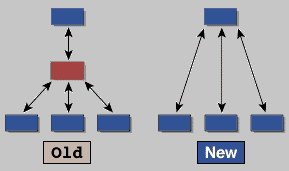
________________________________________________
- In the old way, federal executives were expected to keep staff working within organizational boundaries.
In the new way, federal executives will need to help staff cross boundaries to work effectively with other organizations.
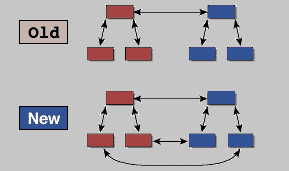
________________________________________________
- In the old way, federal executives were expected to use rules to circumscribe discretion, because employees were not to be trusted.
In the new way, federal executives must empower their employees to achieve the goals of the organization, within statutory constraints and the organization's agreed-upon vision.
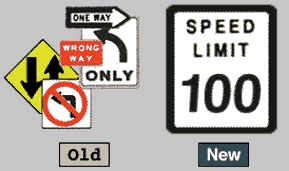
________________________________________________
- In the old way, federal executives were expected to protect and enlarge their operations and to satisfy higher levels of management.
In the new way, federal executives will need to satisfy their customers.
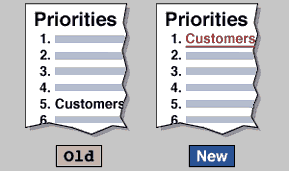
________________________________________________
- In the old way, federal executives were expected to communicate one level up and one level down.
In the new way, federal executives will need to communicate through every layer of their agencies.
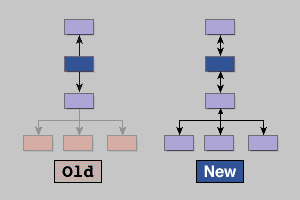
________________________________________________
- In the old way, federal executives were expected to tell their subordinates what the executives needed.
In the new way, federal executives will need to ask subordinates what they need to do their jobs.
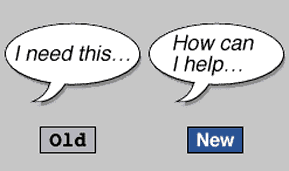
________________________________________________
- In the old way, federal executives were expected to use hierarchical arrangements, with checks and controls over every input, elaborate reporting mechanisms, and extensive rules and regulations.
In the new way, federal executives will be expected to concentrate on performance and carefully measured results--output, not input.
 Return to Close-Up Menu
Return to Close-Up Menu Return to Table of
Contents
Return to Table of
Contents